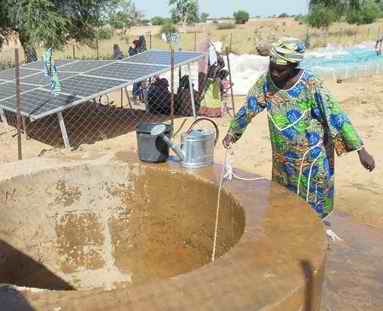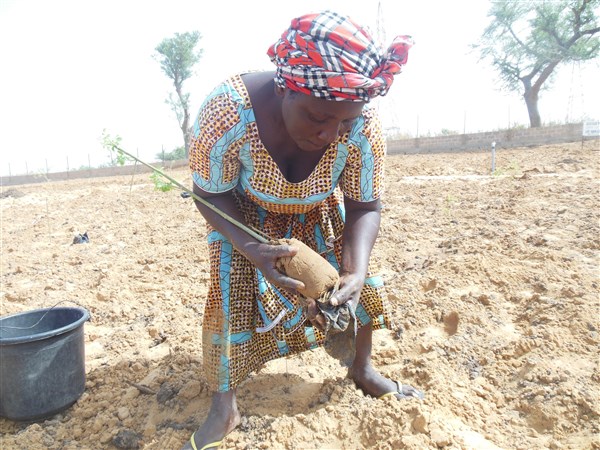Rotary Raises Farmers out of Poverty in Africa
Posted by David Smith
Rotary Raises Farmers out of Poverty in Africa
The Rotary Club of Pagosa Springs is recognized locally for its many programs that support and enhance the quality of life in Pagosa Springs. Current projects include scholarships for advanced studies, organization of the 4th of July Parade, the Feed Our Children Program, providing dictionaries to 3rd grade students, and more.
The Rotary Club of Pagosa Springs is also helping to improve the quality of life in some of the poorest countries in the world. It has recently joined with Rotary Clubs in Carbondale, Aspen, with three Rotary Clubs in Canada and with a Rotary Club in Niger to carry out a project in Niger. The goal of this project is to lift subsistence farmers in Africa out of poverty by approaching farming as a business and not just a means of survival. This goal will be achieved by providing a solar powered irrigation system and educating women and children to view farming as a business. The project is being implemented in the village of Gueriguindi, Niger, which is 30 minutes outside the capital city of Niamey.
Economic development in Niger has been slow. According to the UN Human Development Index statistics, Niger is the poorest country on earth. 70% of the country lies within the Sahara desert. Its 17 million citizens are primarily subsistence farmers, growing barely enough rain-fed crops to feed themselves. Drought conditions prevail in two years out of five. The general shortage of rain puts the food supply at constant risk. Farmers are trapped in a cycle of endless poverty. Feeling desperate to feed their families, they may try to migrate to Europe or they may join terrorists groups that offer hope and wages.

Rotary program will provide a solar powered pump to supply water to the fields. At this time, the solar panels have been installed and the pump is expected to be delivered soon.
The Farmers of the Future Program introduces new agricultural concepts, encouraging farmers to think of farming as a business and not just a means of survival. These new concepts and techniques are introduced simultaneously to 2 generations: to primary school students open and receptive to new ideas and to their parents, primarily mothers, who put new ideas immediately into practice. Working with students and parents has a synergistic effect in creating change. Students learn that farming can be a good source of income. Mothers prove the point by significantly increasing household income.
This project is funded through Rotary clubs in Colorado and Canada, and through matching funds from The Rotary Foundation. Total budget for the project is $54,315. The Rotary club, Niamey-Gaweye, Niger oversees the entire project. It is responsible for dispersing funds; it visits the site regularly to monitor progress; and it is the main point-of-contact for the clubs supporting the project. Although the residents of this village have never heard of Denver, they have heard of Pagosa Springs and they know that there are people in Pagosa Springs who are helping them to improve their quality of life.
This project is funded through Rotary clubs in Colorado and Canada, and through matching funds from The Rotary Foundation. Total budget for the project is $54,315. The Rotary club, Niamey-Gaweye, Niger oversees the entire project. It is responsible for dispersing funds; it visits the site regularly to monitor progress; and it is the main point-of-contact for the clubs supporting the project. Although the residents of this village have never heard of Denver, they have heard of Pagosa Springs and they know that there are people in Pagosa Springs who are helping them to improve their quality of life.

Planting moringa trees. A nursery for starting onions and moringa trees has been established.
 Pagosa Springs Rotary Club
Pagosa Springs Rotary Club